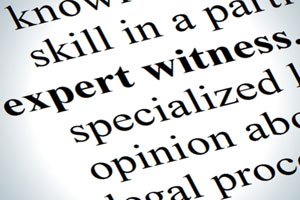Maintaining an appearance of objectivity is essential if an expert witness wants to be effective. When an expert appears to be an advocate for a party, the jury is less likely to regard the expert’s testimony as credible.
An expert who testified about the potential effect of alcohol on an alleged sexual assault victim learned that lesson during her cross-examination. According to media reports, the expert’s credibility was attacked because the expert’s emails to the defense attorney suggested a lack of objectivity.
Brock Turner Trial
Brock Turner was a varsity swimmer at Stanford and a potential Olympic contender prior to his arrest. He was charged with sexually assaulting an intoxicated, unconscious woman behind a fraternity house in January 2015. The alleged victim, a 23-year-old woman, did not attend Stanford but was on campus to attend a party at the fraternity.
A student who was biking to the party at about 1:00 a.m. testified that he saw Turner on top of a woman who was laying on the ground and not moving. The student testified that he confronted Turner and that Turner tried to run away. The student and his friend held Turner until the police arrived.
The police determined that the woman was unresponsive. The woman’s dress was hiked up and her underwear was found on the ground next to her.
A paramedic who responded to the scene testified that the woman was unconscious. However, she vomited before entering the ambulance and was able to clear the vomit from her throat without assistance.
The woman was taken to a hospital, where she regained consciousness after about three hours. Her blood alcohol content was estimated to be 0.24{d61575bddc780c1d4ab39ab904bf25755f3b8d1434703a303cf443ba00f43fa4} at the time of the alleged assault. Turner’s was 0.17{d61575bddc780c1d4ab39ab904bf25755f3b8d1434703a303cf443ba00f43fa4}.
Turner was charged with three felonies: assault with intent to commit rape of an intoxicated or unconscious person, sexual penetration of an intoxicated person, and sexual penetration of an unconscious person. Turner, who was a 19-year-old freshman, withdrew from Stanford following his arrest.
Turner told the police that he had sexual contact with the woman but did not have intercourse with her. At trial, Turner testified that he “dry humped” the woman and penetrated her with his finger, but again denied that he had intercourse with her. He said he never removed his pants.
Since nonconsensual penetration with a finger would be sufficient to establish a sexual assault under California law, the question for the jury is whether the woman was either unconscious or too intoxicated to consent to Turner’s actions. Turner testified that the woman was awake and that she gave verbal consent to the sexual activity.
The alleged victim’s sister testified that she seemed fine at 12:15 a.m., when the sister left the party she was standing and her eyes were open.
The alleged victim testified that she could not remember anything that happened after midnight. Other witnesses established that she made two telephone calls at about 12:30 a.m., but she did not remember making those calls. She also acknowledged that she had experienced four or five alcohol-related blackouts when she was still in school.
Prosecution Experts
A sexual assault nurse examiner testified that scratches on the woman’s body were consistent with “penetrating trauma.” She acknowledged, however, that she did not know what caused the scratches.
A forensic biologist who examined the woman’s underwear as well as swabs taken from her cervix and vagina found no evidence of semen. He found DNA that he attributed to the woman and to one other person in the waistband of the woman’s underwear, but he ruled out Turner as the source of the DNA.
Defense Expert
To obtain a conviction, the prosecution needs to prove that Turner’s alleged victim was either unconscious or extremely drunk and that Turner knew about that condition when he had sexual contact with her. The defense called a psychology professor to give expert testimony on the effects of alcohol, including blackouts.
The professor testified that a person who has been drinking can seem normal despite having a level of intoxication that leads to a blackout. The professor explained that an intoxicated person might be capable of making decisions, such as a decision to drive or to have sex, but incapable of storing short-term memories about those decisions.
The prosecution did not attack the scientific validity of the expert’s testimony. Instead, the prosecution attacked the expert. The prosecutor cross-examined the expert about an email she wrote to the defense attorney that “exulted in the acquittal of a Seattle man who had confessed to rape and expressed hope for a similar outcome for ‘our client’.” The prosecutor used that email to portray the expert as an advocate for the client, not as an unbiased expert.
A second email questioned whether communications between the expert and the defense should be turned over to the prosecutor because (according to the expert) doing so would be “akin to showing our entire poker hand prior to making a bet.” The disclosure of the emails was required by California law and the suggestion that they should not be disclosed created the impression that the expert was trying to create an advantage for the defendant instead of providing neutral evidence. The reference to poker also gave the prosecutor a chance to ask “Do you think this is a game?,” a potentially devastating question.
Expert Credibility
The lesson to be learned is that experts should avoid making statements that could be used to suggest a close alignment with the outcome of the case. Lawyers are advocates for clients. Effective experts are advocates for the truth. When an expert appears to cross the line by strategizing about how to win the case or by referring to the lawyer’s client (rather than the lawyer) as “my” client, the expert risks crossing a line that will harm the expert’s credibility.
(Photo Credit: “Expert Witness” by The Blue Diamond Gallery is licensed under CC BY-SA 3.0 NY)




